Why celebrating Lunar New Year is more important than ever
"If my mere existence is going to be politicized, then my joy will be an act of resistance against white supremacy."
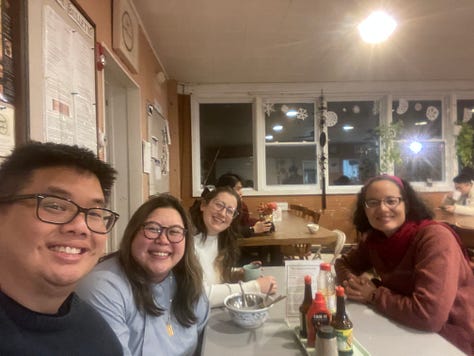
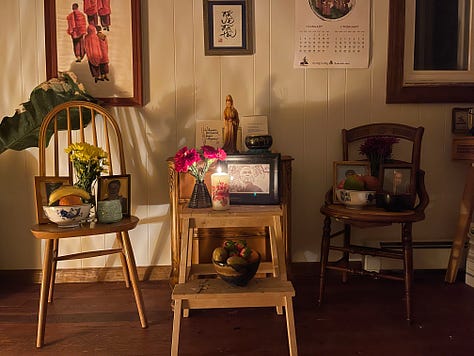
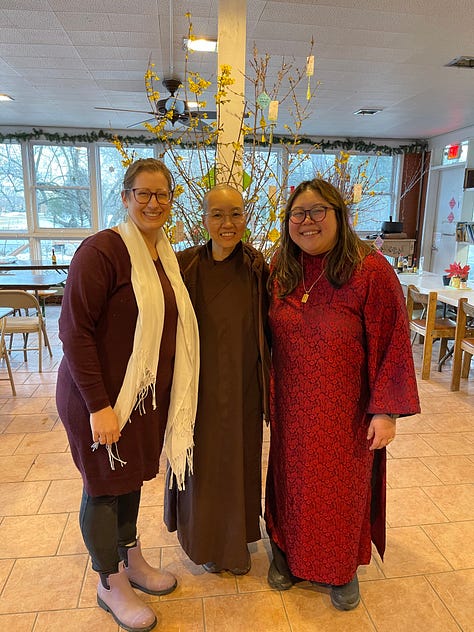
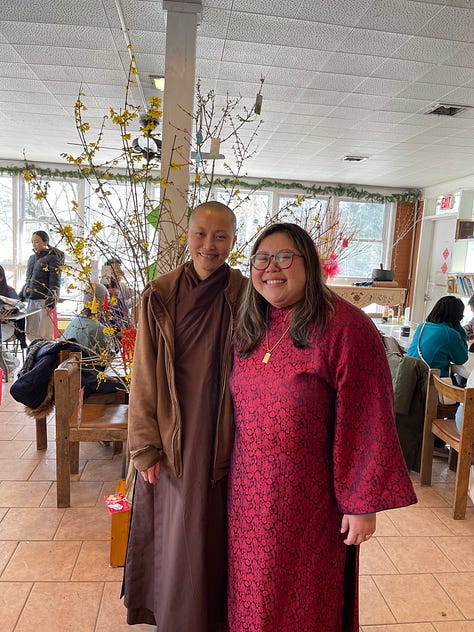
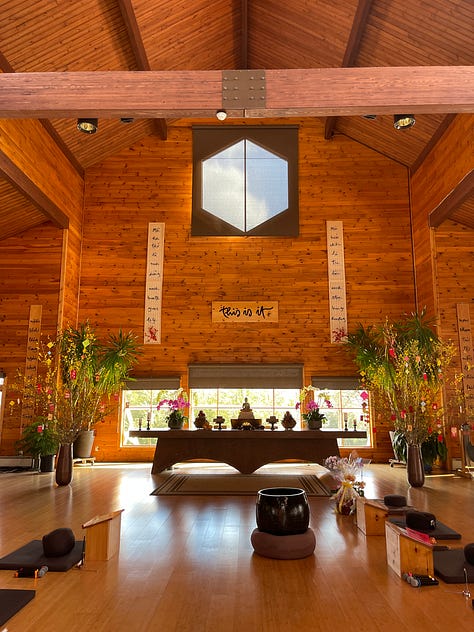
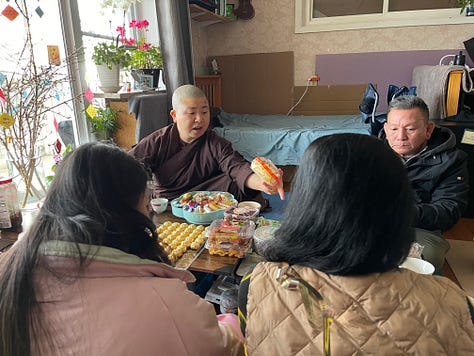
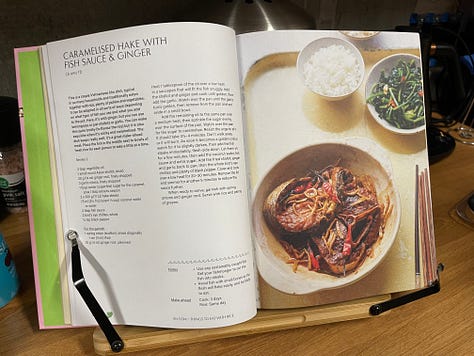
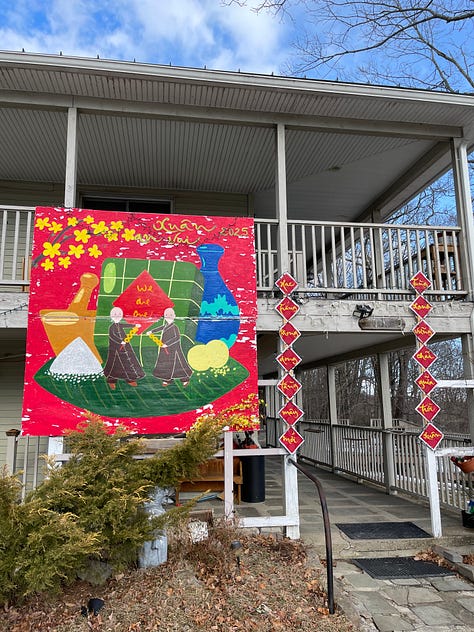
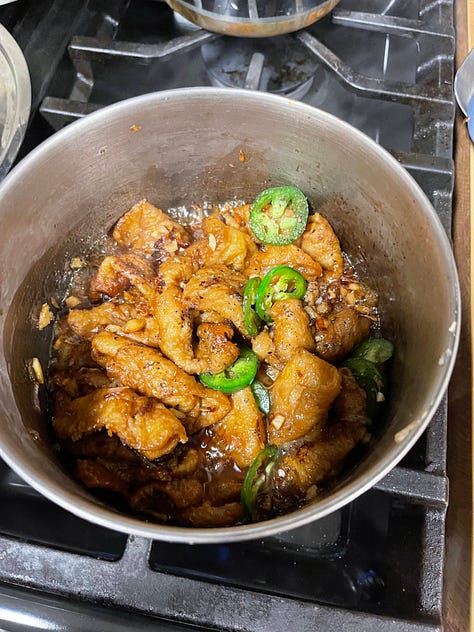
This past Wednesday was Lunar New Year.
If you know me, you know Lunar New Year (Tết in Vietnamese) is a special day for me and my family. And I’m not alone in that sentiment; Lunar New Year is actually celebrated by 2 billion people across the world. In certain parts of Asia, people take off the whole week to celebrate — in some cases, the whole month.
The first records of a Lunar New Year celebration are from roughly 3,500 years ago, during the Shang dynasty in China. These records mentioned the sacrifices people made to gods and ancestors at the end of each year.
According to legend, the holiday began when a village terrorized by a mythical beast called the Nian discovered the creature was afraid of loud noises and the color red. They began a yearly tradition of putting red lanterns outside their homes and burning crackling bamboo to keep the Nian away. Over the centuries, it evolved into a more celebratory social event that included feasting, dancing, and fireworks.
Lunar New Year has always been an instant pathway back to my heritage and to my ancestors. For me, it signifies where I come from and where I want to go. It is a fresh start while honoring traditions that run deeply in my genetic make-up.
Lunar New Year is a potent holiday filled — and has at times been targeted because of that. We saw this most recently with the Monterey Park shooting a few years ago when an elderly Asian man opened fire on his own community due to what authorities say were because of isolation; how Mao Zedong and the Communist Party banned its celebrations in 1949; and how in 1968, the VietCong staged a multi-city surprise attack on the South Vietnamese government. The Tết Offensive was a huge turning point in the war, with reports of more than 75,000 armed forces were reportedly killed or wounded while 14,300 civilians were killed and 24,000 wounded.
Growing up, I saw how my mother slaved over cooking and preparing for Tết for days. It wasn’t until I was much older did I realize how important it was to her — and now, me — to keep up this tradition. Perhaps because she witnessed how quickly a centuries-old tradition could be taken away with violence. Or perhaps because she saw how easily it was for us to lose a sense of our culture as we assimilated into America.
Conscious or not, my desire to fit in when I was a teenager often meant pushing away my Asian identity so I could read and be more American, which I now know meant more white.
I have been sitting with this a lot this past week, as Trump continues to rage on fulfilling his “promise” of a “Golden Age of America”. I, like I’m sure many of us, am already tired after his first two weeks of being in office.
As his administration continues to target immigrant communities and overly publicize how “dangerous” they are to take inhumane actions against those who are undocumented, I can’t help but think about what little Asian Kim Thai would be feeling in this moment.
Scared, I’m sure. And perhaps even wishing I wasn’t Asian.
But as one of the sisters wisely advised me, “Don’t let your fear control you,” I am taking this moment as an opportunity to tap into deeper sense of myself and my ancestral heritage. To lean in into the full essence of my being.
Which is why celebrating Lunar New Year this year to me felt more important than ever — because if my mere existence of being a Queer Asian woman is going to be politicized, then my joy will be an act of resistance against white supremacy. My peace will be the biggest form of protest I can offer to myself in these moments when he is intentionally stoking fear and creating chaos. And my biggest source of power is declaring that I’m a proud Queer kid of Vietnamese refugees.
Embracing my roots
This year was my third year celebrating Lunar New Year at Blue Cliff Monastery, one of Zen Master Thích Nhất Hạnh’s practice centers. On New Year’s Eve, we came together and witnessed each other’s talents through a community showcase filled with music, dance, poetry — and even juggling. (My favorite was an original ChatGPT song that Brother Earth performed with a lay musician friend called the Buddha and My Pick-Up Truck!).
On actual Lunar New Year, the ceremony started with fireworks and a Lion Dance and ended with a Touching the Earth ritual — a moving prayer where we show gratitude to our ancestors and teachers who came before us. We spent the rest of the day feasting on beautiful vegetarian food and deciphering our fortunes through oracle readings.
Perhaps most special for me was wearing a traditional Vietnamese dress, an áo dài, which has proved difficult in the past as a larger-bodied Vietnamese woman. What felt most significant was when Sister Empathy saw me in my áo dài and said that it was beautiful for her to witness me in the last few years lean more and more into my Vietnamese heritage. I felt very seen by her in that moment, thinking back to the years and years of feeling lost in my Asian identity; it was a relief, a refuge to think of it now as home.
Contemplations
This coming year is the year of the Wood Snake, which represents wisdom, transformation and also resilience and adaptability. With that in mind, here are a few prompts for you to sit with and reflect on:
What ancestral wisdom and traditions can you embrace and honor?
How can you tap into a deep sense of resilience from your ancestors?
How can you allow yourself to be adaptable this year?




Happy New Year, Kim! 🧧 Hope to see you at Blue Cliff soon.
Love the joy in this piece, Kim! Happy new year!!